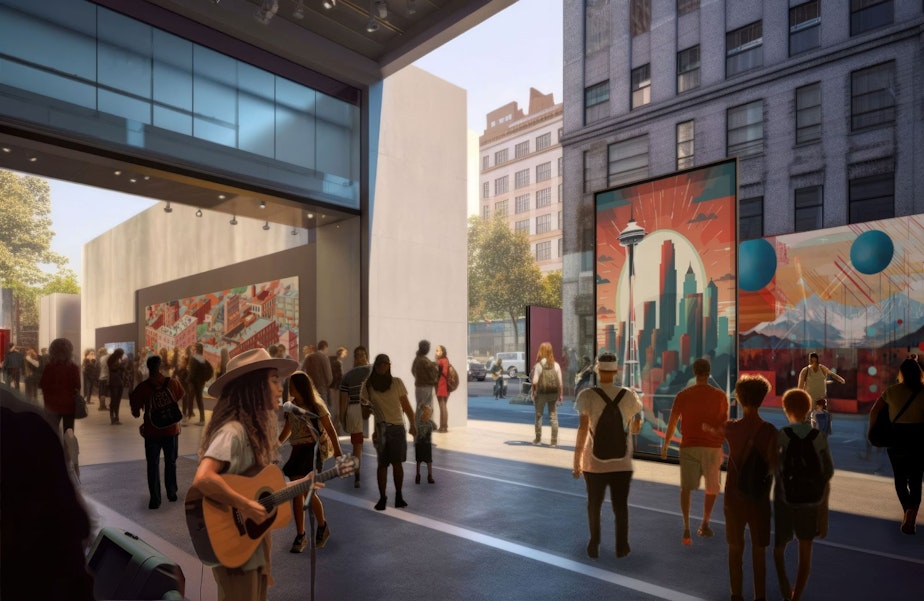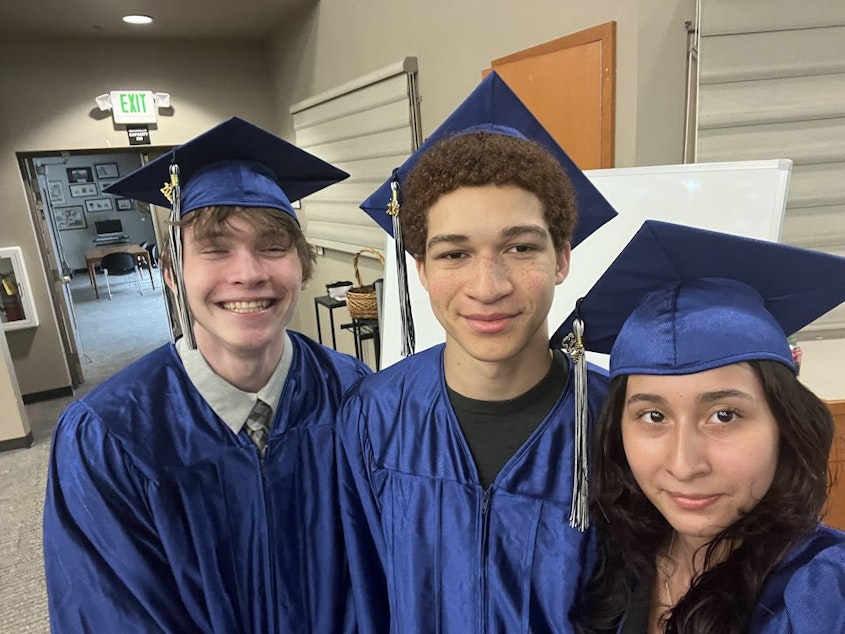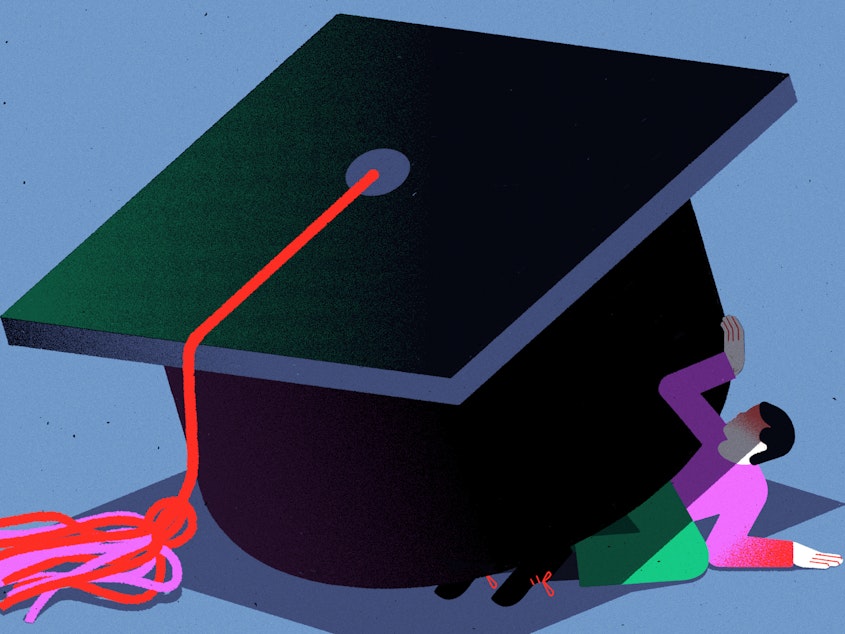How AI would design Seattle's future: Today So Far

- What kind of city would an AI program design if we asked it to create a thriving downtown Seattle?
- It's time to talk about fireworks, injuries, and local bans.
This post originally appeared in KUOW's Today So Far newsletter for June 30, 2023.
Quick hits
- What does SCOTUS' ruling against affirmative action mean for WA?
- Theo Chocolate announces merger, plans to close Seattle factory
- Good deal: Savers Value Village worth nearly $4 billion after strong public debut
What kind of city would an AI program design if we asked it to create a thriving downtown Seattle?
Thanks to an effort from Mayor Bruce Harrell's office, we actually have an answer to that question. Harrell has been hyping his Downtown Activation Plan, which not only includes near-term policies, it also considers plans for far into the future of Seattle. The city could look at policies around housing and transportation, etc. to remedy current problems, but Harrell asked the architecture firm Olson Kundig to come up with AI-developed scenes for a future Seattle.
The idea was to think of a Seattle that took big steps, like it did when the Space Needle was built, forever changing the skyline, and which now iconically represents the city. KUOW's Joshua McNichols presents us with the results: a sports field under a massive umbrella; a new downtown arts and entertainment district; new markets and lots more food trucks. AI even drew up images if Seattle ever did decide to put a lid over I-5, creating a massive tree-lined park through the core of downtown. Check out the full story here.
Sponsored
Growing up, my folks were very anti-fireworks. The reason for this happened before I was born. My older brother loved fireworks. So did his friend from down the street, Larry. They liked to light firecrackers and throw them as high as they could into the air and watch them explode. That's what they were doing in our driveway one Fourth of July, long ago. Larry grabbed a firecracker, took a lighter, lit the fuse, and then threw the lighter. After the trip to the emergency room (Larry was fine, aside from some scrapes), I think my folks got a bit paranoid, so by the time I came along, I was lucky if I could get my hands on sparklers and smoke bombs.
Stories like this are why a hospital like Seattle's Harborview Medical Center is expecting to treat 65 people (adults and children) for fireworks injuries. That's its average over the past few Fourth of July holidays. And that's just one emergency room in our region. On top of that, there is the wildfire risk.
It's a good idea to find out if fireworks are banned in your area. I'm going to cut to the chase and say, "yes, most likely." While rounding up as many Western Washington fireworks bans as I could find, I found myself thinking that it might be a much shorter list if I just noted where fireworks are allowed.
Most major cities in our region have banned the sale or use of them, such as Seattle, Bellevue, and Tacoma. In King County, it's illegal to set off fireworks in unincorporated areas, which is most of the county. Pierce County has similar rules. I understand there is a holiday and all, and I enjoy a good fireworks show, but some illogical folks in the past said to themselves: "Ya know what, let's set off a bunch of explosions during the driest, hottest part of the year. What could go wrong?" We now know that it basically equals fires.
If you are planning to light a few fireworks this year on your own, my own personal advice (other than checking out a professional display, of which there are many to choose from in our area), is to have a water hose nearby and ready, and a bucket full of water to dispose of used fireworks. Also, it's a good idea to have something other than your hands to pick up spent fireworks, in case there are lingering explosions waiting to go off.
Sponsored
Check out KUOW's list of fireworks bans here.
AS SEEN ON KUOW

Eva Miranda (right) poses for a photo with two fellow graduates at Eastside Academy's graduation ceremony. Graduation has finally arrived for the Class of 2023. Their high school experience was unlike any other. Some have dubbed these grads as the "Class of Covid," because the pandemic overlapped with every one of their high school years. (Courtesy of Eva Miranda)
DID YOU KNOW?
Sponsored
There's a new type of gravity we now know about, and it's changing our understanding of the universe, and our ability to study it. As NPR reports, researchers in the United States, Europe, Australia, India, and China have been watching for a certain type of "space ripples" that indicate an "elusive type of rumbling through space."
Basically, when galaxies collide, the black holes at their centers merge and circle each other. This sends a certain type of gravitational wave across space. Detecting these waves proves something Albert Einstein first assumed existed in 1916. It gets a bit sciencey when it comes to how astrophysicists were recently able to detect these waves. But as Jeff Hazboun, an astrophysicist at Oregon State University, puts it, "We get to hack the galaxy." Read more here.
ALSO ON OUR MINDS

Sponsored
In one of the most anticipated decisions of its current term, the U.S. Supreme Court has struck down President Biden's sweeping plan to discharge some or all federal student loan debt for tens of millions of Americans.

